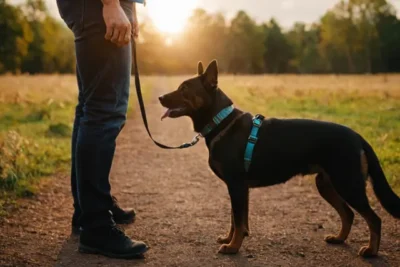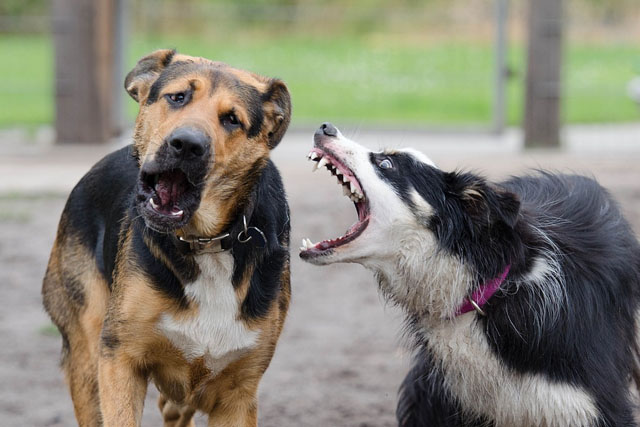



One common reason why dogs may attack each other is resource guarding. Dogs are naturally territorial animals and may become aggressive when they feel that their resources, such as food, toys, or even their owners, are being threatened or taken away. This behavior can be seen when one dog tries to approach another dog's food bowl or when they try to take a toy away from each other.
Fear or anxiety can also trigger aggression in dogs. When a dog feels threatened or scared, they may resort to aggression as a way to protect themselves. This can happen when a new dog is introduced into the household or when they are in unfamiliar environments. Dogs that have not been properly socialized or have had negative experiences in the past are more likely to exhibit fear-based aggression.
Dogs that have not been properly socialized with other dogs may display aggression towards unfamiliar dogs. Socialization is crucial for dogs to learn appropriate behavior and how to interact with others. If a dog has not had positive experiences with other dogs during their critical socialization period, they may become fearful or aggressive towards them.
Dogs are naturally territorial animals and may become aggressive when they feel that their territory is being invaded. This can happen when a new dog is introduced into the household or when they encounter other dogs in their neighborhood. Dogs may display aggressive behavior, such as barking, growling, or even attacking, to protect their territory.
Some dogs have a strong prey drive, which means they have a natural instinct to chase and hunt small animals. This prey drive can be triggered when they see another dog running or exhibiting certain behaviors. Dogs with a high prey drive may become aggressive towards other dogs, especially if they perceive them as a potential prey.
Hormonal changes, such as those that occur during mating season or when a female dog is in heat, can also contribute to dog aggression. Male dogs may become more territorial and aggressive towards other male dogs, especially if they perceive them as a threat to their reproductive opportunities.
It's important to consider that underlying medical issues can also cause aggression in dogs. Pain, discomfort, or certain medical conditions can make a dog more irritable and prone to aggressive behavior. If you notice a sudden change in your dog's behavior, it's essential to consult with a veterinarian to rule out any potential medical causes.
Dogs that have had past traumatic experiences, such as abuse or attacks from other dogs, may develop aggression as a defense mechanism. These dogs may have learned that aggression is the only way to protect themselves and may display aggressive behavior towards other dogs as a result.
Dogs that have not received proper training or discipline may be more prone to aggression. Without clear boundaries and consistent training, dogs may not understand what is expected of them and may resort to aggressive behavior as a way to assert themselves or get their way.
Dogs are pack animals and have a natural instinct to establish a hierarchy within their social group. In some cases, dogs may display aggression towards other dogs as a way to establish dominance or maintain their position in the pack. This behavior is more common in multi-dog households where there is competition for resources and attention.
In conclusion, there are several common reasons why dogs may attack each other. These include resource guarding, fear or anxiety, lack of socialization, territorial behavior, prey drive, hormonal changes, medical issues, past traumatic experiences, lack of training or discipline, and pack hierarchy and dominance. It's important to understand the underlying cause of the aggression and seek professional help if needed to address and manage the behavior effectively.
Related posts